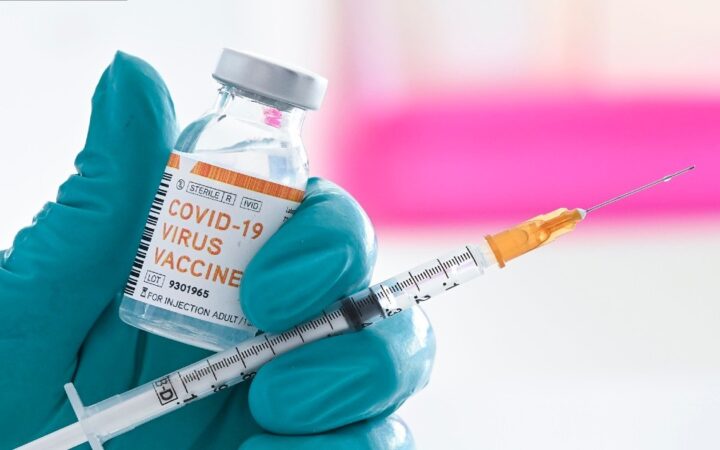Is it safe to take the COVID-19 vaccine?
As the public health authority that regulates medicines in the European Union, the European Medicines Agency only recommends the approval of COVID-19 vaccines after a comprehensive assessment that demonstrates the high standards of quality, safety and efficacy required for any other vaccine approved in the EU. After the vaccination process, i.e. the administration of the medicine, has begun, the national pharmacovigilance systems of all Member States collect information on the safety of medicines and send it to the European monitoring system (eudravigilance). The information is collected via spontaneous reporting of adverse drug reactions (ADRs), via studies and via the World Health Organization, or other medicine agencies such as the Food and Drug Administration (FDA). The European Medicines Agency continuously assesses the safety of the authorised vaccines, i.e. the safety of vaccines, like other medicines, is a dynamic and ongoing process.
All Covid-19 vaccines approved by the European Medicines Agency will be safe and effective. This does not mean that more or less serious adverse reactions cannot occur.
The results obtained in clinical trials and all information related to each vaccine are publicly available and can be consulted in the Summary of Product Characteristics (SmPC) for vaccines against COVID-19 on the Infarmed website.
After conditional authorization of the vaccine, manufacturers are obligated to conduct further studies and trials, and must submit safety reports to the European Medicines Agency on a monthly basis.
I had COVID-19. Can I get the vaccine?
There is not enough information to know whether, after having COVID-19, a person is protected from getting the disease again (natural immunity), or how long it lasts. Early data suggests that natural immunity to COVID-19 may not last long, but more studies are needed to better understand the situation.
Therefore, knowing that there are no increased risks to vaccinating those who have previously been infected with SARS-CoV-2, the recommendation to vaccinate even those who have already been infected with the virus remains.
The recommended interval between vaccination and the last event (last dose of Covid-19 vaccine or diagnosis of SARS-CoV-2 infection) is four to six months (with an interval of at least three months).
I am pregnant. Can I get vaccinated?
Pregnant women aged 16 years or older should be vaccinated against COVID-19 with the mRNA vaccine, and a medical certificate is not required for this purpose. There is no upper gestational age limit for starting vaccination. However, COVID-19 vaccination in pregnant women must respect a time interval of at least 14 days with respect to the administration of other vaccines, such as pertussis vaccine (Tdpa) and influenza vaccine. However, if timely vaccination is required, any time interval can be used, including co-administration of influenza vaccine and pertussis vaccine. It should also be noted that breastfeeding is not a contraindication to COVID-19 vaccination.
Should children and adolescents be vaccinated?
In Portugal, health authorities recommend primary vaccination starting at the age of five. This recommendation is the result of an opinion issued by the Technical Committee on Vaccination against COVID-19 on December 3, 2021. Primary vaccination is also recommended for children aged six months to four years who present with serious diseases such as:
– Active malignant tumor.
– It was a target for planting.
– Immunosuppression.
– Diabetes.
Should cancer patients postpone or interrupt treatment to receive the vaccine?
Although it is preferable to be vaccinated against COVID-19 before starting cancer treatment, any such treatment should not be delayed because of the vaccine.
Also, if cancer treatment is ongoing, it should not be interrupted to proceed with the COVID-19 vaccination. This does not prevent compliance with the precautions and special circumstances that may arise from the General Directorate of Health regulations regarding COVID-19 vaccinations.
What precautions should you take before receiving the COVID-19 vaccine?
If you test positive for COVID-19 or have a severe, acute illness, with or without fever, you should wait until you are fully recovered to get vaccinated. The goal is to avoid mixing your illness symptoms with potential side effects of the vaccine.
If you have had a previous allergic reaction to medicines (including vaccines) or food, you should have the vaccine in hospital and on the advice of your doctor.
You should also tell the healthcare professional administering the vaccine if you have:
– Immunodeficiency or undergoing immunosuppressive treatment (including chemotherapy).
– Clotting disorders, platelet changes, or anticoagulant therapy.

“Wannabe internet buff. Future teen idol. Hardcore zombie guru. Gamer. Avid creator. Entrepreneur. Bacon ninja.”

